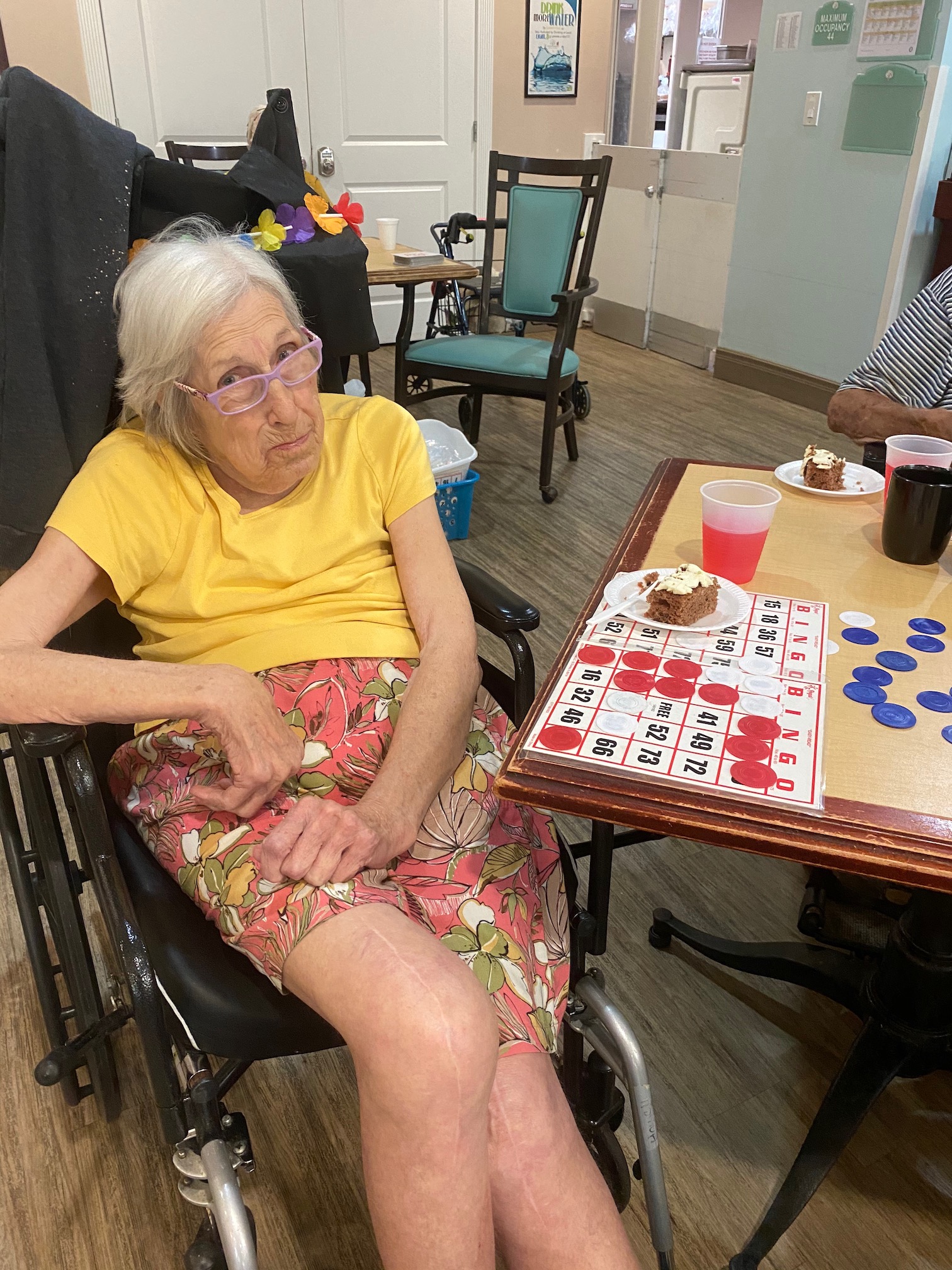Global Deterioration Scale (GDS), was originally developed by Dr. Barry Reisberg, Director of the Fisher Alzheimer’s Disease Education and Research program at NYU Grossman School of Medicine. Reisberg’s guideline is utilized by professionals and caregivers globally to identify a patient stages of Alzheimer’s Disease. Stages 1-3 reflect pre-dementia; stages 4-7 are dementia. According to the guidelines, when a person reaches Stage 5 they can no longer live on their own without assistance.

Mentally healthy persons at any age are considered stage 1, or normal. We will begin looking at the stages of dementia at Stage 2.
STAGE 2: Subjective Memory Loss / Age Related Forgetfulness
Many people over 65 years of age begin to complain of cognitive or functional challenges. They may begin to forget names more frequently, or lose common every day items regularly. The cognitive decline at this stage is typically not noticed by other people, even those close with the patient. These symptoms do not definitively point to dementia, and this stage can last 15 years in a normal and healthy elderly person. However, with a dementia patient they will progress more rapidly.
Stage 3 : Mild Cognitive Impairment
Individuals in Stage 3 begin to manifest subtle symptoms, most often noticed by those closely associated with the patient. A person with mild cognitive impairment (MCl) may repeat questions over and over, and they will lose the ability to perform complex or executive cognitive function. MCI persons may no longer be able to organize a dinner party, or plan an outing with friends. A medical professional should be brought in at this stage, in order to determine if the cognitive decline is due to Alzheimer’s or there is another reason for the decline. Blood tests and an MRI of the brain swill be performed to help in the determination.
Anxiety may set in at this stage.
Stage 4: Moderate Cognitive Decline / Mild Dementia
The diagnosis of Alzheimer’s disease can be made with certainty at this stage. A stage 4 person may have difficulty paying bills, grocery shopping, ordering at a restaurant or even cook. Symptoms of memory loss are clear in this stage. They may forget a recent event, or the day of the week. Still, they can still typically recall their current address and will be aware of current events. There will be obvious signs of decline, but depending on the individual, they may still be capable of living independently.
People at this stage start to have their mood “flattened”, meaning they are less emotional and interactive. This is often due to the fact that they are aware of their own cognitive decline and are trying to “fake it” through their day, withdrawing from conversation in an attempt to hide their condition from others. This stage typically lasts about 2 years.
Stage 5: Moderately Severe Cognitive Decline / Moderate Dementia
In stage 5, deficits are significant enough as to prevent independent living. The characteristic symptom of this stage is the inability to perform ADLs (activites of daily life) and can no longer manage on their own. For instance, some people with Alzheimer’s disease wear the same clothing day after day, or dress for winter in the middle of the summer.
In this stage, a caregiver is required to provide adequate care and proper food, as well take care of finances and utilities. Cognitively, they often cannot remember daily events and aspects of their current life. Functionally, they have a decreased capability to independently operate for all daily activities.
Stage 6: Severe Cognitive Decline / Moderately Severe Dementia
Alheimer’s patients lose the capability to bathe without assistance, and to properly put on clothing. They develop deficits in other aspects of daily hygiene, such as brushing their teeth. They may become incontinent. Patients in this stage have little awareness of the details of their own life or the world around them. Cognitive decline is so severe that they may confuse their spouse with a parent, or be unable to identify other close family members. They may also lose the ability to speak in this stage.
Emotional changes typically become most obvious and disturbing in this sixth stage. Persons may begin to excessively fidget, to pace, or to exhibit other types of purposeless activities. Because of their anxiety, frustration and embarrassment regarding their situation, Alzheimer’s patients often have verbal outbursts and act in threatening or even violent ways. They also tend to have a fear of being alone.
Stage 7: Very Severe Cognitive Decline / Severe Dementia
Stage 7 individuals require constant care for survival. Speech is limited to approximately a half-dozen intelligible words, and speech will gradually decline until lost altogether. Ambulatory ability may be compromised at the end of the sixth stage and beginning of the seventh stage – but can be postponed if the patient is receiving quality care. As this stage progresses, patients lost the ability to smile, and may lose the ability to hold their head up independently. While people can survive indefinitely in Stage 7, they typically succumb to pneumonia or other diseases during this stage.
Neurological reflex changes and body rigidity also become evident in stage 7.
As your loved one moves through these stages, you may find that you need to get them professional care. If you feel it is time to move your loved one to a memory care center, we invite you to visit A Banyan Residence in the Villages.







